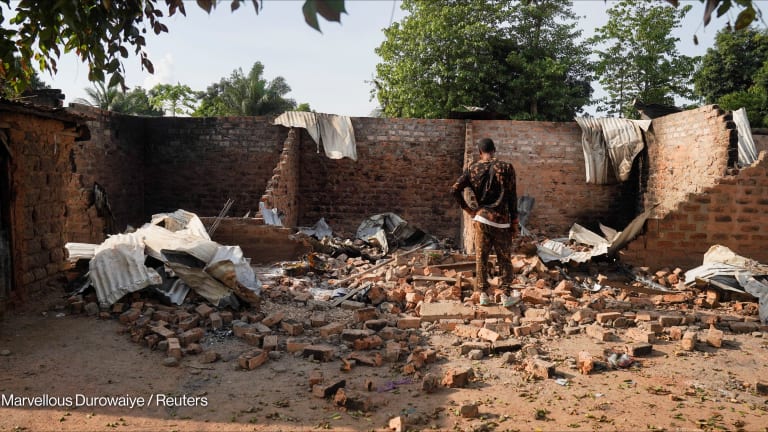
WASHINGTON — One of the two Republican senators that had been preventing the Global Fragility Act from passing the Senate has lifted his hold on the bill as advocates remain cautiously optimistic it will be approved before the end of the year.
Republican Sen. Mike Lee of Utah, who had been preventing the bill from being approved through the legislative process called “hotlining,” has removed his opposition. The legislation, which would coordinate the U.S. around a whole-of-government approach to dealing with fragile states, has already been passed by the House.
On Monday during an event in his home state of Delaware, Democratic Sen. Chris Coons, one of the Global Fragility Act’s cosponsors, identified the senator with a remaining objection as Republican Sen. Rand Paul of Kentucky.
“There is one senator holding it up at this point,” Coons said of Paul, his fellow Foreign Relations Committee member. “I am trying to discern what, if anything, might persuade him, but he is a genuine isolationist who doesn’t want us doing more in more places around the world.”
More on the Global Fragility Act
► Global Fragility Act faces opposition in Senate
► Opinion: What the Global Fragility Act could mean for development investments
► To bolster conflict prevention, US House passes Global Fragility Act
The Global Fragility Act is an attempt to operationalize a report — commissioned by Republican Sen. Lindsey Graham of South Carolina and produced earlier this year by the U.S. Institute of Peace — that examined how the U.S. can do a better job integrating development, diplomacy, and defense efforts in fragile states. It has bipartisan sponsors in both the House and Senate, and Coons said it also has the support of the White House, which is needed for the bill to become law.
“This is about trying to come up with an intentional strategy that is lower cost, longer term and deals with fragile states that aren’t yet states where we are engaged in combat but states where we’ve got joint concern,” Coons said. “It authorizes about $1.5 billion and it says there’s going to be a coordinated strategy first within our own government and then it sets up a global fund that our core partners can participate in.”
A quarter of the Senate has signed on as cosponsors of the bill, which has until the end of the congressional cycle in 2020 to pass before it would have to be reintroduced.
Members of the coalition of organizations that have been advocating for passage of the Global Fragility Act told Devex they remain confident Trump will sign it due to public support for the legislation from Secretary of State Mike Pompeo and U.S. Agency for International Development Administrator Mark Green. Richmond Blake, director of policy and advocacy at Mercy Corps, said the coalition is working with the lead sponsor offices to lift Paul’s hold.
“We’re obviously very happy that one of the two holds that had been put in place has been lifted and our coalition is optimistic that it will be possible to lift the final hold,” Blake said, whose organization is part of the coalition.
“Our coalition has been extremely diligent in terms of meeting with dozens of senate offices to talk about the Global Fragility Act and the transformation that it could bring to the way the U.S. government works on conflict prevention and response, and we of course stand ready to meet with Senator Paul’s staff to talk about the value of this legislation to explain why it’s so important.”
Green recently told Devex that USAID is engaged with authors of the Global Fragility Act and the relevant committees, and that the agency is providing input. The bill would cast the State Department as the main coordinating agency for fragility policy, with USAID and the Department of Defense playing supporting roles.
But Green said that even if the bill does not pass this year, it will not stop USAID from adapting its strategy to be more effective in fragile states. A new Conflict Prevention and Stabilization Bureau will focus on preventing conflict and addressing fragility.
“The good news is that they’re turning to us so we make sure we get this right. But I will say we’re not waiting around,” Green said. “That’s the key part to everything, is we’re moving as fast as we can on so many of these fronts.”
Editor’s Note: This article has been updated to reflect the timeline for congressional passage.
Search for articles
Most Read
- 1
- 2
- 3
- 4
- 5








